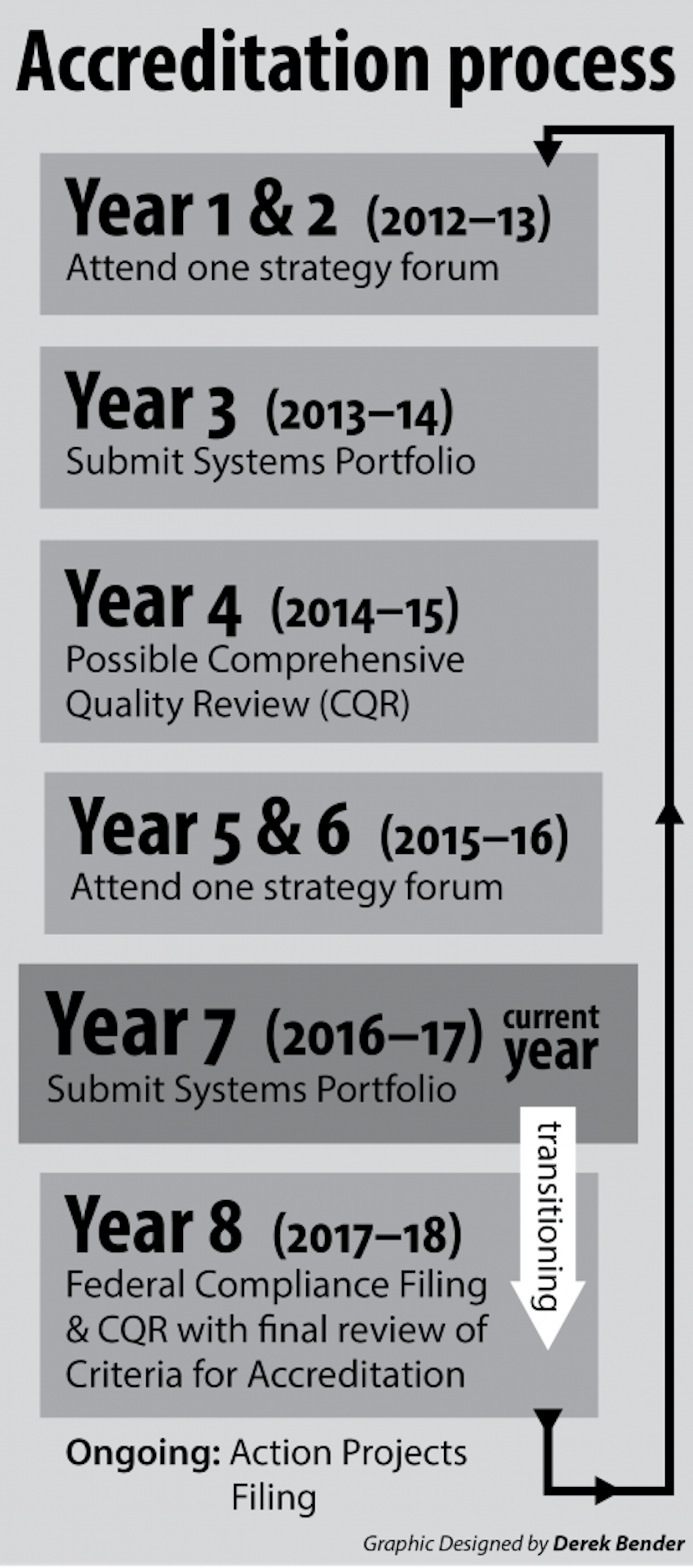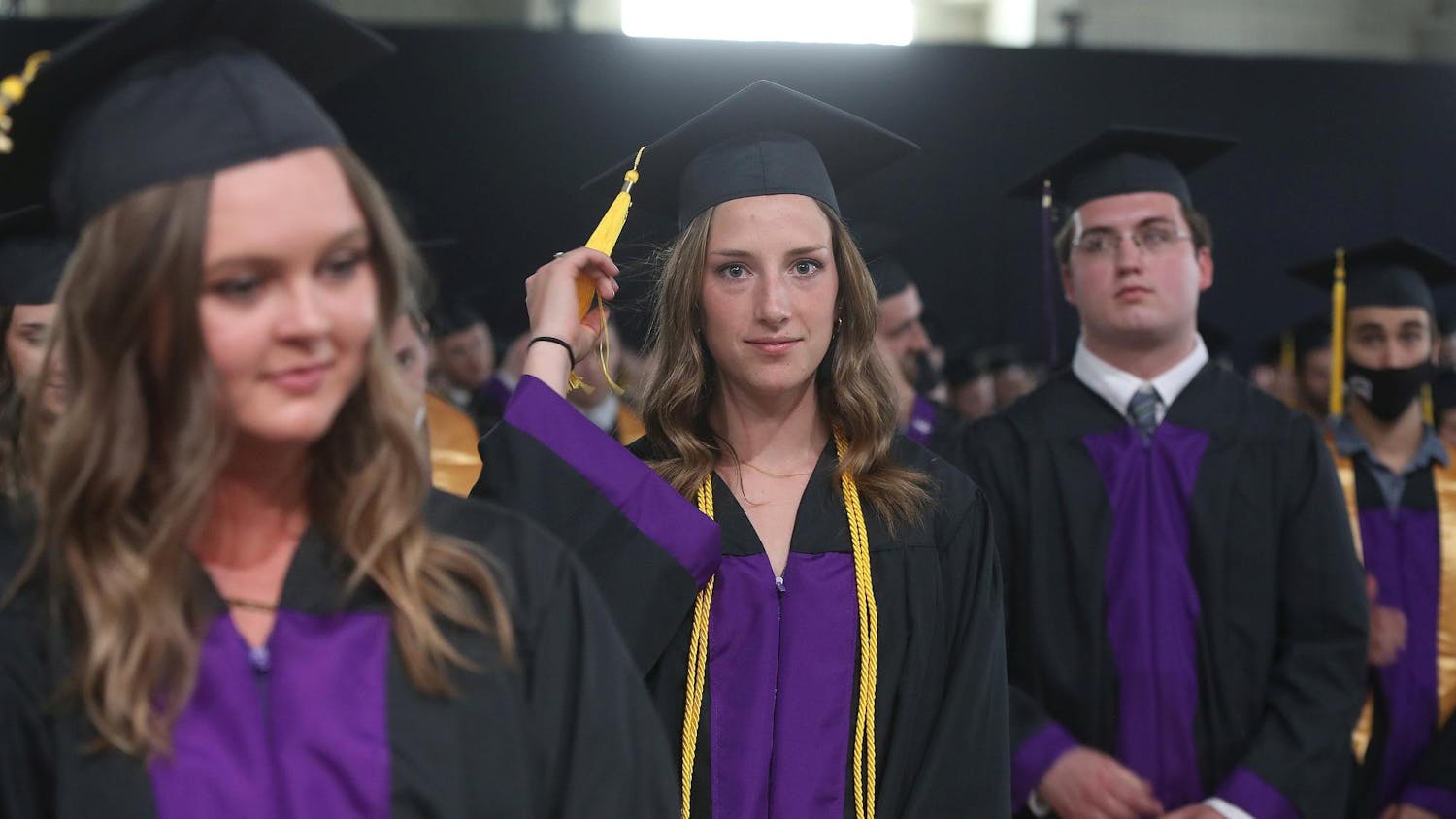
By Jeff Grogan | Echo
Taylor degrees mean something to the professional world because Taylor University is accredited. Achieving and maintaining accreditation is a stressful process that cycles in eight-year waves. The wave is starting to crest. Next year, it will land on Upland's shores.
Taylor administration, faculty and staff are preparing for next year's Comprehensive Quality Review (CQR) that will reaffirm Taylor's accreditation status. The CQR measures how well colleges fulfill five criteria, including academic dedication, mission adherence and use of resources.
Accreditation allows Taylor graduates to obtain jobs and graduate school opportunities and ensures the university innovates in meaningful ways, according to Rhoda Sommers, dean of the school of social science, education and business and member of the CQR Team.
"It validates the degree that students are getting," Sommers said. "So if Taylor would not have accreditation, our degrees would not be considered valid by professionals."
Taylor's accrediting body, the Higher Learning Commission (HLC), can assign one of three outcomes as a result of the CQR: "expectation met," "expectation met with concern," or "expectation not met," according to Kim Case, director of assessment and quality improvement.
"It's kind of a rich opportunity to get outside eyes to look at who we are, what we do and how we do it," Case said.
The HLC performs CQRs as part of an eight-year cycle called the Academic Quality Improvement Program (AQIP). This accreditation cycle compels institutions to make continuous growth and respond to issues raised by periodic evaluations. These efforts culminate in the CQR, which involves a peer review team that will visit campus from March 12-14, 2018, according to Case.
The peer review team will meet with students and faculty members as well as administrative staff members during their visit. According to Sommers, this visit is crucial for Taylor's accreditation status: "Teams, and the composition of teams, are really important, because it can actually either make or break a visit. . . . If you're not honest, the team will pick up on it because they're trained to do that."
Next semester, students will have the opportunity to shape the peer review team's evaluation by filling out a survey administered by the HLC, according to Case and Sommers. The survey will likely cover not only students' classroom experiences but also their extra-curricular involvement. This way, reviewers have the chance to examine every aspect of the Taylor student experience.
"However that survey turns out-those results will inform the conversations the review team will have with our student body," Case said.
In addition to next year's Comprehensive Quality Review, AQIP accreditation standards require two other components: Action Projects and Systems Portfolios, according to the HLC's website. According to Case, the strategic location of the Calling and Career Office is a direct result of a recently completed Action Project to bolster student career services.
The final piece of the AQIP cycle is a Systems Portfolio that Taylor publishes every four years. This comprehensive publication evaluates every aspect of the Taylor education experience. These portfolios are reviewed by the HLC, which then returns a Systems Appraisal document that highlights areas of growth the institution should address, often through Action Projects.
University Librarian Dan Bowell has co-authored chapters in two of the last three Systems Portfolios during his involvement with Taylor's accreditation process.
"I think one of the things about this AQIP pathway (is that) it really accentuates what we should be doing here, which is constantly assessing how we're doing," Bowell said. "It's a continuous quality improvement strategy; a means to seek continual improvement."
According to Case, the partnership between the academic and non-academic parts of student life creates a fuller experience for students. Next year's CQR and peer review will address what Case said is the main question raised by Taylor's ongoing accreditation process: "Do we have a process that ensures we're looking to the future; that we're trying to make sure that we give students every opportunity to be successful?"





